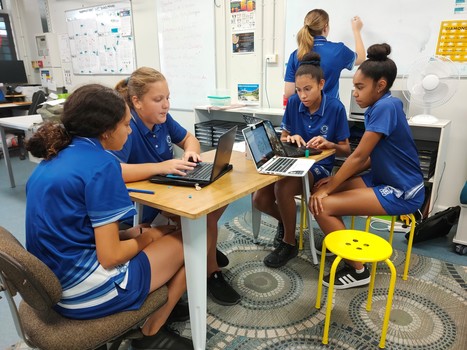p
Bebras Mini Challenges Bebras Mini Challenges are shorter versions of the Bebras Challenge with a focus on a particular Computational Thinking skill. Bebras Mini Challenges, like Bebras 365, are available as a free, easy-access resource throughout the year. Bebras Mini Challenges and do not require a student or teacher login to access and students will receive a grade upon completion of the questions. These challenges are shorter than Bebras 365 with a focus on one particular Computational Thinking skill. Bebras Mini Challenges have been divided into three categories: primary school students, middle school students and senior secondary students.The primary category is recommended for students in years 3-5, middle school for students in years 6-8, and senior secondary for students in year 9 and above. These age groupings are a suggestion only, and we encourage students to challenge themselves by attempting different question sets.
Via Kim Flintoff



 Your new post is loading...
Your new post is loading...











